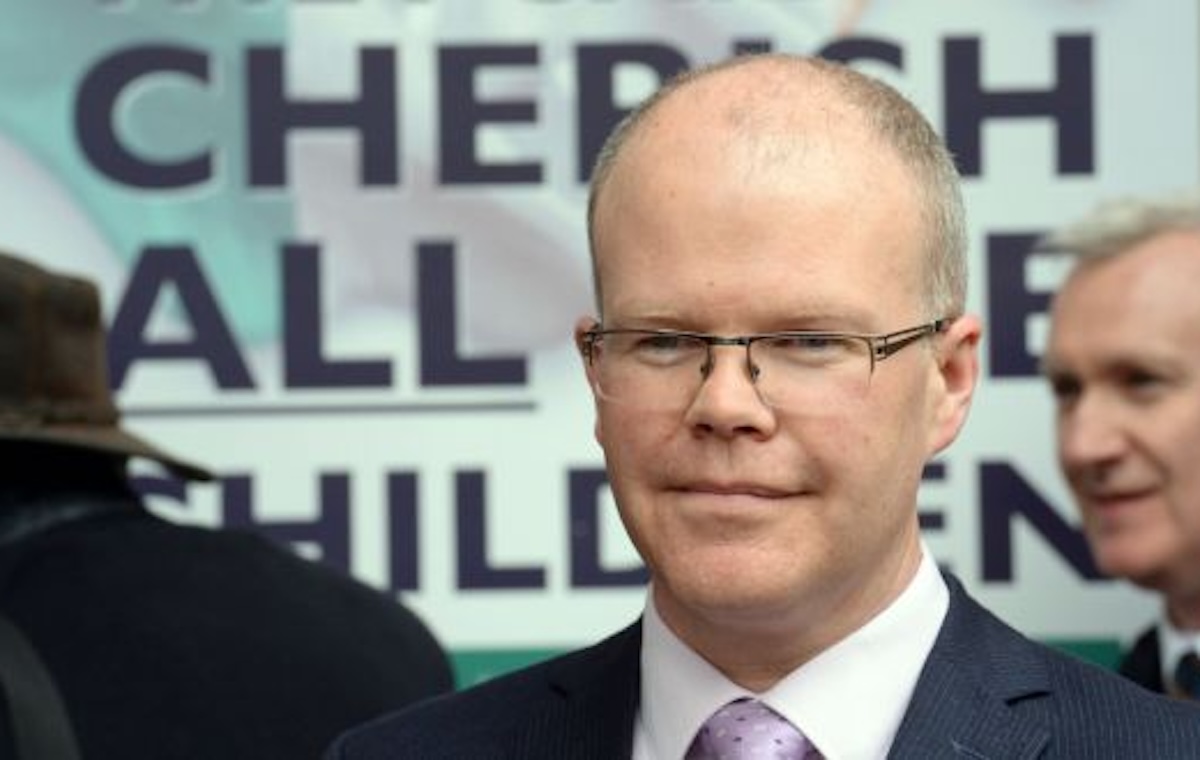
Aontú has reached up to 5% support in opinion polls and is just shy of becoming the fourth largest party in the 26 Counties, just over five years since the party began as a more socially conservative alternative on the republican left.
Much of a recent wave of support has come at the expense of Sinn Féin, who parted ways with its former TD and current Aontú leader, Peadar Tóibín, in 2018.
In a new interview with the Irish Border Poll podcast, Mr Toibin argued that Sinn Féin had become a deeply centralised party that is now out of touch with many of the communities in the 26 Counties which had previously backed it.
“It is a very centralised, managed political party. It has a small number of people at the top who make the decisions, and decisions are rolled out from the top,” he said.
The Meath West TD said socialists and traditional, more conservative republicans were kept together during most of Gerry Adams’s leadership of the party.
“There was always those two wings within Sinn Féin. They were fairly balanced for long periods of time. Whatever your critique of Gerry Adams was, he was the gravity that held those two wings pretty much together fairly solidly,” he said.
However, that position began to change a decade ago when it began to move to the left on social issues “and holding back those with different views”.
Today, Sinn Féin has moved to the centre and has become “a catch-all political party” in the South in a bid to win enough support to be the largest party after the next general election, he said.
Though Mary Lou McDonald is undoubtedly “a very talented leader’, Mr Tóibín went on: “There’s absolutely no doubt that she has been absolutely wrong-footed significantly over the last at number of years on a range of different issues.”
The recent referendums, heavily backed by State-financed non-governmental organisations, were the latest example of the “political bubble” that exists in politics in the Republic, he said.
Such support affected the stand taken by political parties: “I spoke to people in Sinn Féin and the Labour Party, and I said, ‘Why did you support those amendments?’ And they said, ‘Well, because we didn’t want to come out against the NGOs.”
That left Sinn Féin in the “insane” position where the party’s leadership “find themselves significantly adrift from their membership”, the Aontú leader told the podcast.
Illustrating his point, Mr Tóibín said Ballyfermot voted 90 per cent No in the referendums, while “most boxes” across working-class Dublin ran between 80 and 90 per cent against both wordings.
Speaking about his support for Irish unity, the Aontú leader said he believed a referendum had to happen in the coming years, but “proper” all-island planning and spending should happen now.
He has largely backed Sinn Fein proposals for the the details of Irish unity to be made subject of a public, multi-year debate, but prefers the format of a ‘New Ireland Forum’ rather that Sinn Féin’s proposal for a Citizens’ Assembly.
He said he saw the Border “as a thousand blocks”, representing elements of society, whether it is cancer services, air ambulances, planning, the Irish language, or any other aspect of society.
Planning together to deal with each of these “blocks” should happen now, he said: “That’s obviously not a massive threat to anybody to do that because, first of all, planning together for this kind of delivery together will be efficient.”
Referring to a recent radio debate he had participated in with Sinn Fein’s David Cullinane – where he ruled out the possibility of going into coalition with Aontú – Mr Tóibín said:
‘I just thought it was interesting…that Aontú is probably the only other party with this explicit objective of a united Ireland, yet he would rule it out, but go into government with Fine Gael, who pretty much don’t want a united Ireland.’
In terms of the next Irish general election, Tóibín said that if Aontú achieved 4-5% of the vote, he would be ‘deliriously happy.’
And if there was a governing coalition comprising Sinn Féin and Fianna Fáil, Aontú would ‘keep them on their toes.’
The idea of Irish unity being within touching distance “is a great honour for this generation,” he said, “because so many generations past never got the opportunity. We should keep pushing together.”
![[Irish Republican News]](https://republican-news.org/graphics/title_gifs/rn.gif)
![[Irish Republican News]](https://republican-news.org/graphics/title_gifs/harp.gif)

